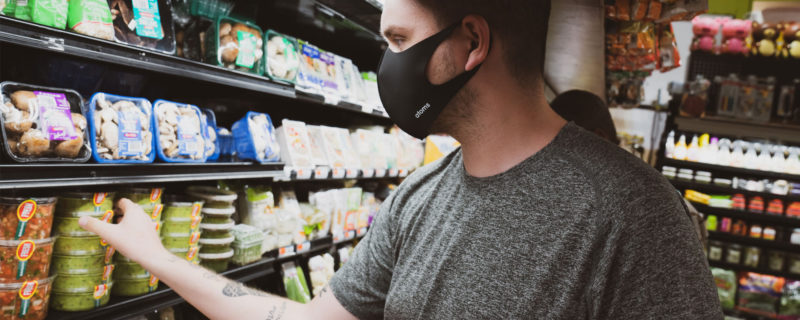A recent study published by the Marriner S. Eccles Institute for Economics and Quantitative Analysis at the University of Utah David Eccles School of Business, showed that economic activity and health outcomes are tightly connected. Promoting personal protective measures like mask-wearing decreases the number of COVID-19 cases increases consumer mobility, and increases consumer spending.
“Masks are not only critical to slowing the spread of the coronavirus, but they are also key to reopening the economy,” said Ben Hart, deputy director of the Utah Governor’s Office of Economic Development. “By wearing a mask, you are not only helping our communities, but also our economy.”
The study included five key points.
- COVID-19 cases decrease after the implementation of a mask requirement. County-level data from across the U.S. show COVID-19 cases decrease after a mask requirement is put into place.
- Low case counts and mask requirements positively influence consumer activity. A Utah consumer sentiment survey conducted as part of this study found people would be 13% more likely to go to a store if confirmed COVID-19 cases fell by 10%.
- Consumer mobility increases after mask requirements are in place. Data measuring consumer mobility (or movement within an economy) show people are willing to increase their mobility and economic activity if they feel safe.
- Spending increases in counties with mask requirements. Data show consumer spending increases in counties with mask requirements relative to counties without mask requirements.
- State mask requirements are more effective than county-level requirements. The study found that consumer spending decreases in counties with county-level mask requirements compared to areas under state-wide requirements.
The full study is located here.
